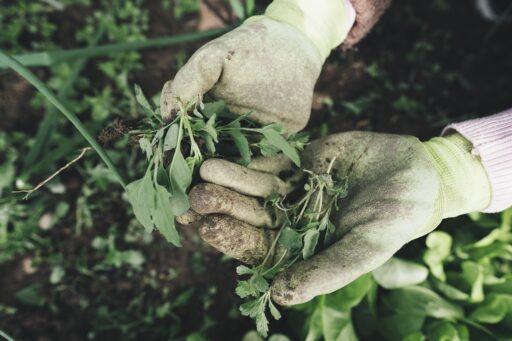For my birthday, my sister sent me The Carrying, the 2018 collection of poems by Ada Limón, current U.S. Poet Laureate. I hadn’t read Limón’s poetry before, and found that getting to know it was very moving. The poems drew me into themselves, into the depths of Limón’s recurrent joys and concerns.
The natural world is her context for many of the poems in this volume. Trees, frogs, a volcano, birds (raven, hawk, sparrow, goldfinches) all get attention. But especially gardening, a favorite activity: “I can’t stop / putting plants in the ground. There’s a hunger in me, // a need to watch something grow” (in the poem “Sway”). Then in “The Burying Beetle,” the speaker begins by imagining the plants’ needs, then interweaves her own life with theirs, and finally sees her digging in the dirt as a metaphor for her mind:
I like to imagine even the plants want attention, so I weed for four hours straight, assuring the tomatoes feel July's hot breath on the neck,… Each nicked spindle of morning glory or kudzu or purslane or yellow rocket (Barbarea vulgaris for Christ's sake), and I find myself missing everyone I know.… And I don't want to pray, but I can picture the plants deepening right now into the soil, wanting to live, so I lie down among them,… in my ripped pink tank top, filthy and covered in sweat, among red burying beetles and dirt that's been turned and turned like a problem in the mind.
A very different motif running through many of the poems is death. In “What I Want to Remember”: “I need to hold this close within me, / when today’s news is full of dead children, // their faces opening their mouths for air / that will not come.” In “Overpass,” the speaker recalls a childhood incident, looking from an overpass into a creek below: “Once, a raccoon’s carcass, half under / the overpass, half out, slowly decayed / over months.” And most painfully, in “The Dead Boy,” there’s a haunting death from her college days—that of a student who had OD’d after shooting up. She had been called to help him, to try to revive him, but she
Turned him to see the ruined face like a petaled jellyfish washed to the stormy shore. I don't want to admit this, but I hated him. Hated the face that I already knew I'd see forever, hated the needle on the waxy dorm room desk… I hated the world, the pain of it that circles in us, that makes us want to be the moon, the treasure, and not the thing on the sea floor…
But just as much as mortality, another theme runs through this volume, especially in its final section: Limón’s infertility—an unsatisfied longing to create new life. Remember my quotation above from “Sway”: “I can’t stop / putting plants in the ground. There’s a hunger in me, // a need to watch something grow.” In the context of the surrounding poems, this need is implicitly her need to give birth to a child. In the book’s title poem, “Carrying,” one of her horses, a mare, is “carrying” (pregnant with) a foal, while she herself isn’t (“my own body, empty”). Then “Mastering” elaborates on her infertility: The speaker is with a friend at a bar, and he says “the real miracle…is the making of a child.” Her response is devastating:
He stares at me, but I am not there anymore. I don't say we've tried a long time, been sad, been happy, that perhaps the only thing I can make is love and art. I want to tell him that's enough. Isn't it? Isn't love that doesn't result in a seed, a needy body, another suckling animal, still love?… I want him to notice what he said, how a woman might feel agony, emptiness…
Yet in the book’s final poem, “Sparrow, What Did You Say?,” Limón becomes reconciled to being childless—and this reconciliation comes via her love of gardening, bringing us full circle. The poem begins with the speaker in her garden—
a few plants in the ground, newbie leaves tucked in black soil, and I think I'm good at this, this being alone in the world, the watching of things growing…
Her attention is then drawn to a bird song she hears, which she finally identifies as a sparrow. Then comes the big shift:
What would I do with a kid here? Teach her to plant, watch her like I do the lettuce leaves, tenderly, place her palms in the earth…? Or would I selfishly demand this day back, a full untethered day trying to figure out what bird was calling to me and why.
So it’s Limón’s solitary joy in nature that reconciles her to her infertility. Well, to her body’s infertility; the earth as she plants in it is plenty fertile enough.
Peggy Rosenthal has a PhD in English Literature. Her first published book was Words and Values, a close reading of popular language. Since then she has published widely on the spirituality of poetry, in periodicals such as America, The Christian Century, and Image, and in books that can be found here.





